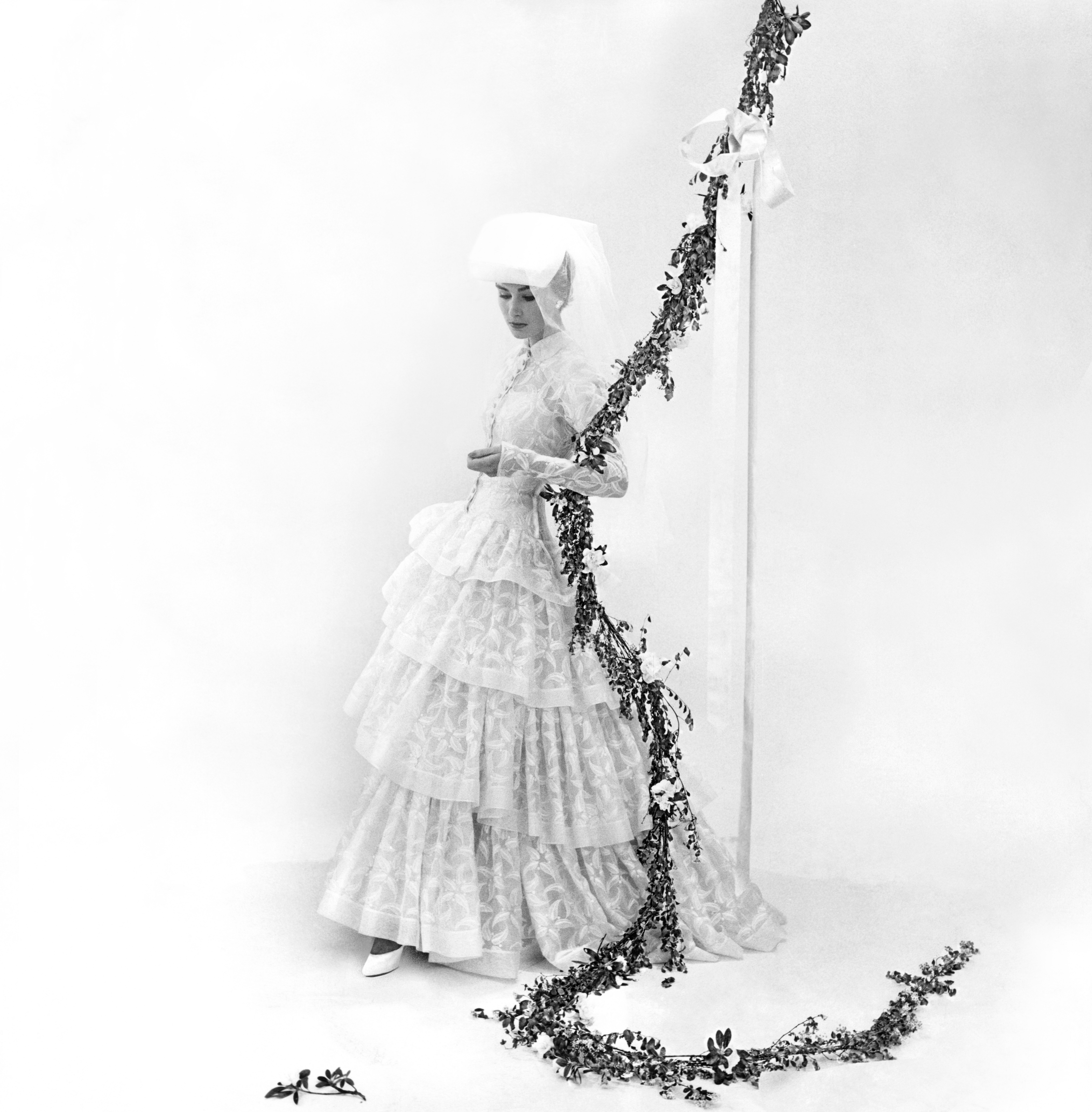The bank of Mum and Dad has a gender pay gap, with a new study finding that parents help their sons more than their daughters to buy their first home. Zoopla found that, on average, female first-time beneficiaries were given or lent £51,671 towards their first property by parents, while sons got an average of £65,004, meaning men typically got £13,333 more than women. The question on experts’ lips is, why? Is it a case of straightforward sexism? One theory is that the parents of girls pay out significant sums towards their daughters’ weddings , and make up the difference for their sons in the form of boosted gifts for deposits.
It got me thinking about the tradition that the bride’s family pay for the wedding, something many people still take as a given despite its roots in patriarchal ideas of dowries, ownership and trousseaus. As I found when I got married, it’s all very well trying to be a feminist bride, but decoupling a wedding from its historically gendered origins is not always easy. I’m married with a child, and renting in London.

I loved my wedding, but if I were to be gifted a large sum of money, I’d opt for a house deposit every time. A wedding is just one day, and though that day will be replete with lifelong memories, the money spent will never give you the sort of security that bricks and mortar can. Not wanting to eat into our saved deposit fund too much, which we had worked hard to build up over many years, and by choosing to live with flatmates, we opted for an affordable wedding – a registry office ceremony with a pub reception afterwards, spending the bulk of the budget on food for our guests.
Family contributed in all sorts of ways, from my mother-in-law gifting us the cake, to my brother- and sister-in-law building and creating a beautiful photo backdrop in the shape of a crescent moon. My dad – and stepmum – contributed generously to our wedding, but when I asked him if he minded that I would rather he didn’t “give me away”, he replied: “I never felt like I owned you in the first place.” That made me tear up more than any ceremonial lifting of a veil might, but then, we’re all different.
It was a wonderful, but comparably very modest, celebration. The average cost of a UK wedding is £20,700. I understand the pressure to have the big do, and lavish, picture-perfect displays on social media do not help.
Personally, despite wanting to keep costs small, the one thing that I didn’t want to compromise on was a dress. I had always been interested in fashion, and had seen my dream dress in Vogue at the age of 18, an exquisite drop-waisted 1920s-style gown crafted from silk and lace and adorned with delicate beading. I fell immediately in love.
Over a decade later, I went to the showroom to try it on, but the cost, while not of deposit proportions, could simply never be justified. This is the trap that a lot of women fall into, and I get it, I really do. The princess myth is real: I saw many of my friends insist that they “would never wear a meringue”, only to fall hook, line and sinker for gowns that made Lady Diana Spencer’s look like a flimsy little slip in comparison .
Subconscious ideas about weddings that have lain dormant since we were little girls somehow raise their heads, and even the most level-headed bride might end up contemplating an outlay of several hundred pounds on something ridiculous like chair covers. (To quote my cousin: “What on earth is wrong with a naked chair?”) I did my best to resist, traipsing off to a vintage sale at Chelsea Town Hall and purchasing a pair of antique curtains handmade from French lace, which my mother, a skilled dressmaker, said she would try and fashion into a copy of the dress. Then a miracle happened: I found a sample of my dream dress in my size for less than half the price.
My mother and godmother kindly clubbed together and paid for most of it. Why do I tell you this? Because sometimes I look at my dress, hanging in the drying room, ruined from a night of partying, and think about the sunk cost. Not having that dress would not have meant having a house deposit instead, not for me, but there are undoubtedly women out there who had massive, lavish weddings who are still waiting to get on the property ladder.
In some ways, it makes financial sense to get married before buying a house together, and I love a good wedding. There is no other occasion when you’ll succeed in getting everyone you love in a room together. But, unromantic though it may be, consider the expense – and the divorce rate.
I don’t know what can be done to deter women from feeling the immense pressure to have a perfect wedding, and from their families – fathers, usually – feeling that they need to pay for it. The inconvenient truth is that many men simply do not care about weddings, and find the expense frivolous. Why shouldn’t they have boosted deposits to reflect the fact they’re not bothered? Or perhaps they’re still having a big wedding, but their girlfriends’ fathers are paying for everything.
And so the patriarchal cycle continues. Other theories for the gifting gap have been presented, from the fact that more young women go to university than young men, to the notion that daughters may be better at saving money than sons. Whatever the reason, it remains deeply unfair that a large family contribution is in many cases the only way that young adults can get on the property ladder (the survey found that those who had help from parents bought their houses at 32 years old, compared with 39 for those who did not).
It’s hard to talk about the shame that one can feel when all of your friends are on their second or third homes, and you still haven’t bought your first, if you ever will. It’s easy to buy into the tedious media narrative that you should have bought less brunch , but the issue is structural. It is a national scandal that you can be paying large sums of rent reliably for years, but cannot take out a mortgage for a comparatively small monthly outlay.
I hope this is something that our new government will try and change. You can say that maybe I shouldn’t have had a wedding at all, but so many of us felt impatient for adult life to get started, the traditional milestones denied to us due to generational injustice. Young adults have a right to romance and a right to family celebrations; these are things that make life worth living.
Still, look at the hierarchy of needs, and a safe, warm home is as fundamental as it gets, breathing, food, water and clothing aside. I still have those beautiful French antique lace curtains. They are folded carefully in a suitcase in tissue paper, awaiting their forever home.
I hope that one day I’ll get to hang them..



















